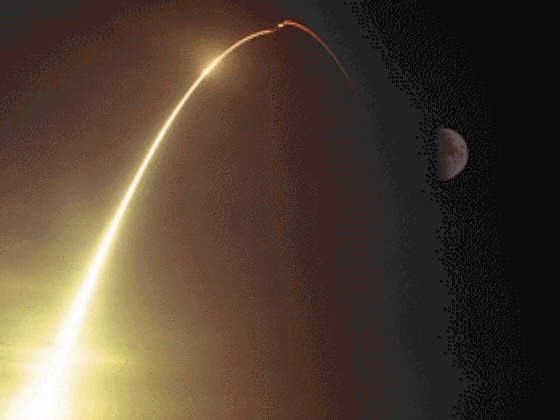
|
Credit & Copyright: Kennedy Space Center,
NASA
Explanation:
Tuesday, January 6, at 9:28 p.m. EST, NASA's
Lunar Prospector spacecraft
climbed into the sky above
Cape Canaveral Air Station
riding an Athena II rocket.
Representing NASA's first Moon mission since the 1972 flight of
Apollo 17,
this launch also occurred on the 30th anniversary of the launch of the
Surveyor 7 lunar lander.
The three stage launch vehicle's fiery trail is in the foreground
of this time exposure
while
the Moon, near
first quarter phase,
is shown in the background
some 250,000 miles from the Cape.
Prospector will cover that
distance
in about 5 days, entering lunar orbit on Sunday.
Prospector carries no cameras to image the
well-photographed lunar surface.
Instead, its
array of instruments will map the lunar gravity,
magnetic field, internal structure, and surface composition.
The result, a detailed global view of current
lunar properties,
is expected to
dramatically impact humanity's
understanding of the origins of
the Moon and the Solar System.
From its
vantage point in polar orbit,
only 63 miles above the lunar surface,
Prospector will also conduct a sensitive
search for water ice which may be preserved
in permanent shadow at
the Moon's South Pole.
Tomorrow's picture: Saturnian Aurora
|
January February March April May June July August September October November December |
| ||||||||||||||||||||||||||||||||||||||||||||||||
NASA Web Site Statements, Warnings, and Disclaimers
NASA Official: Jay Norris. Specific rights apply.
A service of: LHEA at NASA / GSFC
& Michigan Tech. U.
Based on Astronomy Picture
Of the Day
Publications with keywords: spacecraft - Moon
Publications with words: spacecraft - Moon
See also:
